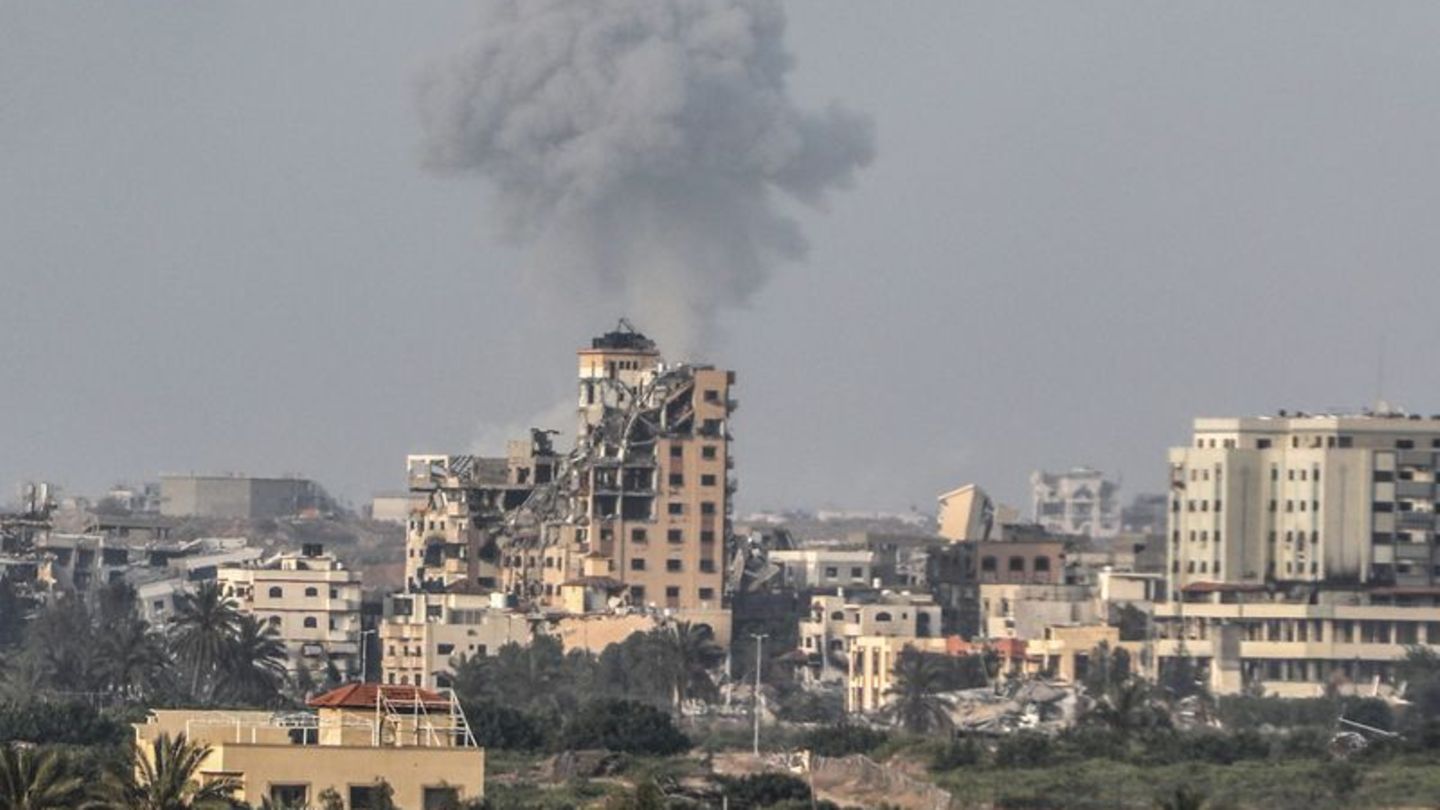In addition to Hezbollah and Hamas, the Houthis in Yemen are also the target of an Israeli attack. Meanwhile, concerns about a possible ground offensive in Lebanon are growing.
As Israel’s army intensifies its actions against Iran’s allied militias with renewed air strikes in Lebanon, the Gaza Strip and Yemen, fears of an all-out war in the Middle East are growing. When asked by reporters whether this could still be avoided, US President Joe Biden replied: “It has to. It really has to be avoided.” He wanted to talk to Israel’s Prime Minister Benjamin Netanyahu. Meanwhile, he had his army again attack a command center of the Islamist Hamas in Gaza and positions of the Hezbollah militia in Lebanon that night.
Israel is increasing pressure on Hezbollah to stop its attacks and withdraw from the border area. During the latest escalation, hundreds of people have died in Israeli attacks in Lebanon over the past two weeks, according to media reports. No one was killed in Israel during the same period.
Meanwhile, according to the Israeli army, dozens of warplanes also bombed targets in Yemen, around 1,800 kilometers away, including power plants and a port through which the Houthi militia is said to have transported Iranian weapons and military supplies. The information could not be independently verified. According to eyewitnesses, the port city of Hodeidah was rocked by explosions. The Houthi-affiliated TV station Al-Masirah reported four deaths. Like Hezbollah, the Houthi militia also repeatedly attacks Israel – according to their own statements in solidarity with Hamas, against which Israel has been waging war for almost a year.
Meanwhile, three days of mourning begin today in Lebanon for Hezbollah chief Hassan Nasrallah, who was killed on Friday in a targeted Israeli airstrike in a Beirut suburb. However, the Shiite militia has not yet released any information about his burial. There also appears to be no successor to Nasrallah yet.
Concern about Israeli ground offensive in Lebanon
There are growing concerns that Israel’s army could launch a ground offensive in the south of the neighboring country. After Nasrallah’s killing, Israel’s army chief Herzi Halevi hinted at this possibility on Saturday. He had approved plans for the Northern Command of the armed forces. “Challenging days lie ahead,” he said. The Israeli army is “on high alert, both defensively and offensively, on all fronts.” She is prepared for what comes next.
Experts speak of a possible “trap” that Israel could fall into. Despite the death of Nasrallah and almost the entire senior leadership, Hezbollah still has thousands of experienced fighters and an extensive weapons arsenal with which it could inflict significant losses on Israeli troops on prepared terrain in its southern Lebanese strongholds, wrote the Wall Street Journal. . Hezbollah cannot wait for Israel to invade southern Lebanon, the newspaper quoted a former Israeli MP and current employee of the Atlantic Council think tank as saying.

“You will not be able to destroy us”: Hundreds flee to Beirut
01:39 min
An Israeli ground offensive could help Hezbollah rise “from the ashes” and regain the support of broader Lebanese society, it said. Israel’s commanders are aware of the danger of ground fighting, the newspaper wrote. The political problem, however, is that Israel’s declared war goal – the return of 60,000 Israelis who were driven out of areas along the border by Hezbollah attacks – can hardly be achieved with air strikes alone.
Lebanon: Up to a million displaced people possible
According to acting Prime Minister Najib Mikati, up to a million people in Lebanon could be displaced by Israel’s attacks. It is already the largest number of displaced people in the country’s history, said Mikati in Beirut. In the current conflict with Israel there can only be a diplomatic solution: “There is no choice for us as diplomacy.” According to the UN, more than 210,000 people have been displaced in Lebanon since the new confrontations began, including around 120,000 people in the last week alone.
According to the United Nations, the number could be significantly higher, also based on the experience of the previous war with Israel in 2006. 50,000 Syrians and Lebanese have also fled to neighboring civil war-torn Syria. Despite the recent massive Israeli strikes, the Hezbollah militia has so far refused to stop shelling Israel unless the Israeli government agrees to a ceasefire in the Gaza Strip.
Expert: Iran is facing a dilemma
The dramatic weakening of the Hezbollah militia puts the Islamic Republic of Iran in a “very difficult situation,” the Wall Street Journal quoted Michael Horowitz, head of intelligence at the consulting firm Le Beck International, as saying. The Lebanese militia is “an important part of Iran’s defense doctrine and its main deterrent against Israel.” Iran is now faced with the dilemma of possibly having to defend Hezbollah, it said. Against this background, the Houthi militia in Yemen could become even more important for Iran in its so-called “Axis of Resistance,” with which Tehran is fighting against its declared arch-enemy Israel.
Israel’s air strike on Yemen was carried out in response to recent Houthi attacks, according to the military. On Saturday evening, a missile alarm was triggered again in the coastal metropolis of Tel Aviv, among other places, due to a missile. The militia said it had attacked Ben Gurion Airport near Tel Aviv with a ballistic missile. According to the military, this was intercepted before it reached Israeli territory.
Israel’s air force last attacked Yemen at the end of July. The target was also the port of Hudaydah in response to a deadly Houthi drone attack on Tel Aviv. Meanwhile, the Israeli army said it once again attacked a Hamas command center from the air in northern Gaza, which was located on the site of a former school, the army announced that night. Numerous measures were taken before the attack to reduce the danger to civilians. The information could not initially be independently verified. The army said it also attacked other Hezbollah militia positions in the Bekaa Valley in eastern Lebanon.
Source: Stern
I have been working in the news industry for over 6 years, first as a reporter and now as an editor. I have covered politics extensively, and my work has appeared in major newspapers and online news outlets around the world. In addition to my writing, I also contribute regularly to 24 Hours World.




